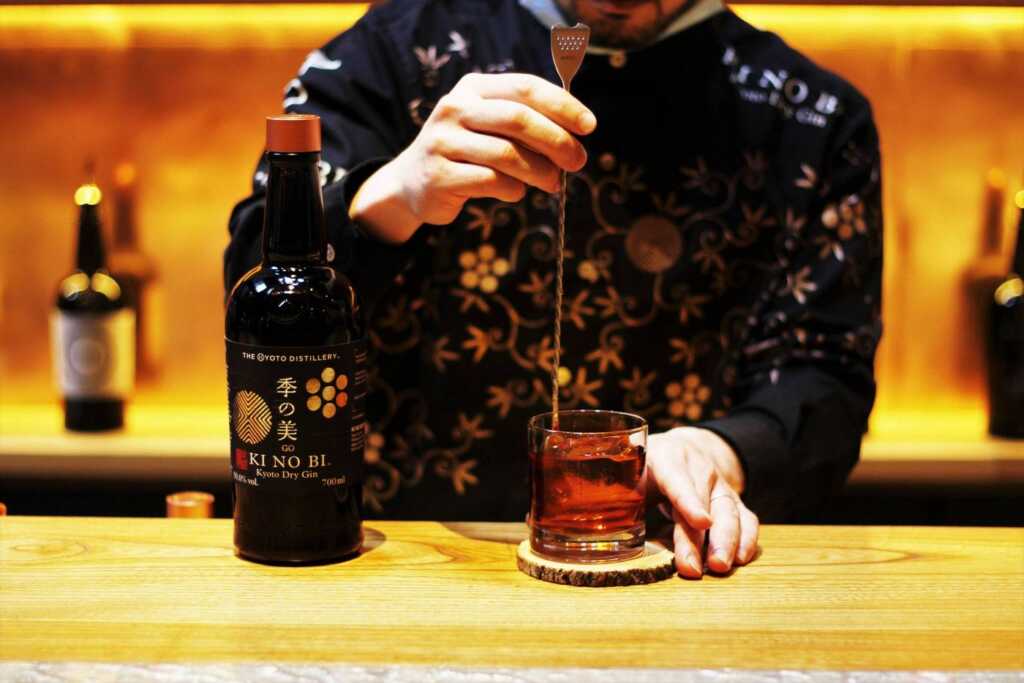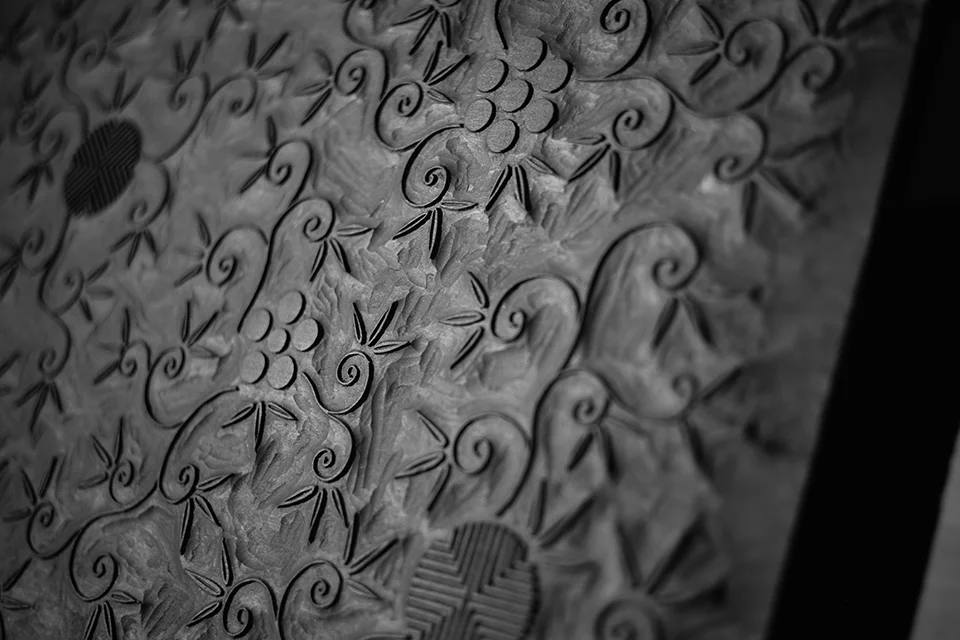In the heart of Kyoto, a city steeped in Japan’s vibrant history and cultural traditions, The Kyoto Distillery and The House of KI NO BI are redefining the art of gin-making, inviting visitors to experience their spirits firsthand.
Ki No Bi stands out due to its unique terroir, meticulous craftsmanship, and distinct tasting notes. Even within the global Pernod Ricard family, the brand remains deeply rooted in its Kyoto origins
Antonio Sanchez, the Managing Director of The Kyoto Distillery

Antonio Sanchez, the Managing Director of The Kyoto Distillery, and Marcy Sakuma, manager of The House of KI NO BI, warmly hosted the Bridges team for an exclusive interview. During the visit to The House of KI NO BI, they shared the origins of Japan’s first gin, their journey, and their deep connection to Kyoto.

Drawing inspiration from tradition and nature
KI NO BI Kyoto Dry Gin is handcrafted at The Kyoto Distillery, which has the distinction of being the first dedicated gin distillery in Japan. A prestige gin brand under the Pernod Ricard umbrella, KI NO BI draws inspiration from the traditions and pristine natural surroundings of Kyoto — a city where fertile soils and fine waters yield high-quality ingredients for esteemed teas and liquors.

“Kyoto, with its prized water quality and profound heritage, was the natural choice for our distillery,” shared Sanchez. “Renowned sake breweries, particularly in Fushimi, have flourished here. Its fine waters and locally grown ingredients like yuzu, sansho pepper, bamboo, and red shiso leaves, paired with the legendary Uji teas; all of that makes Kyoto so special for us.”


Sakuma elaborated on their distinctive production methods, “Beyond the special ingredients we use, our process is what truly differentiates us. We infuse our gin with a touch of Japanese essence. We carefully select 11 botanicals, grouping them into six flavor profiles, which are then individually distilled with rice spirits and blended with Fushimi water.” He highlighted the intricate nature of this approach, which, while time-consuming, ensures the unique flavors and mouthfeel of their gin.
A focus on collaboration and craftsmanship
Collaborations with revered local artisans and businesses are integral to their brand. The intricate design of their gin bottles pays homage to Kyoto and its millennium-long tradition of craftsmanship. Labels, inspired by 17th-century woodblocks, are meticulously hand-printed on washi paper. Sakai Glass, a Kansai-based enterprise dating to 1906, crafts the bottles.

“Our founders started small, continuously perfecting their craft while pursuing their dreams. Today, our gin is exported to and enjoyed in 50 countries,” said Sanchez. “While we have experienced remarkable growth, we constantly aim to stay authentic by using local ingredients that reflect the essence of Kyoto.”
Every bottle we produce is a reflection of innovation anchored in centuries-old traditions. We welcome guests to the House of KI NO BI in the heart of Kyoto
Marcy Sakuma, Manager of The House of KI NO BI
Throughout its journey, the distillery has consistently impressed enthusiasts with a range of exceptional limited editions. Among these, the highly anticipated cask-aged series, KI NOH BI editions stood out, paying homage to the distinctive Noh masks utilized by Kanzeikyukokai of Yarai nohgakudo, a renowned Japanese theatre troupe. This series showcased diverse expressions of KI NO BI gin, each finished in distinct casks.
The House of KI NO BI
Established in 2019, The House of KI NO BI is located inside a restored machiya (a traditional Japanese wooden house) that dates back over a century. The interior boasts woodwork by local craftsmen, textiles from Nishijin by Hosoo — a company founded in 1688, dedicated to preserving the legacy of kimono culture — and wallpapers with designs by the esteemed karakami paper company, Kira Karacho, which was established in Kyoto in 1624.


The House of KI NO BI features a blending room, where it offers seminars tailored for everyone of legal drinking age, from inexperienced to gin aficionados, and a specialty shop that showcases their exclusive products and pioneering spirit.



In addition to the store front, the first floor offers exclusive cocktails and tasting flights in a richly decorated bar and a unique “Gin Palace” experience reminiscent of Victorian-era decor, but in a Kyoto machiya setting. Visitors can experience vintage cocktails, the entire KI NOH BI series, and even rare Japanese whiskies.
Devoted to the art of gin making
During tasting seminars at The House of KI NO BI, guests can sample the six foundational Elements of KI NO BI gin, providing an in-depth understanding of their intricate production techniques.
“Ki No Bi stands out due to its unique terroir, meticulous craftsmanship, and distinct tasting notes. Even within the global Pernod Ricard family, the brand remains deeply rooted in its Kyoto origins,” concludes Sanchez.
“Every bottle we produce is a reflection of innovation anchored in centuries-old traditions. We welcome guests to the House of KI NO BI in the heart of Kyoto, where we’ve devoted ourselves to the art of gin-making. Here, experience firsthand how each creation embodies both the rich heritage and promising future of this historic city,” shares Sakuma.
The House of KI NO BI offers an exclusive “ELEMENTS” membership, granting access to the revered Gin Palace based on availability, among other exclusive benefits.
To learn more, email [email protected]
or call directly at 075-223-0457.
kyotodistillery.jp









